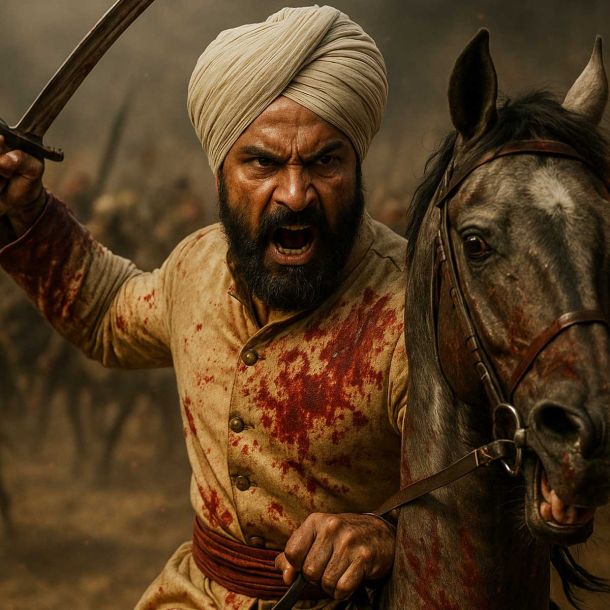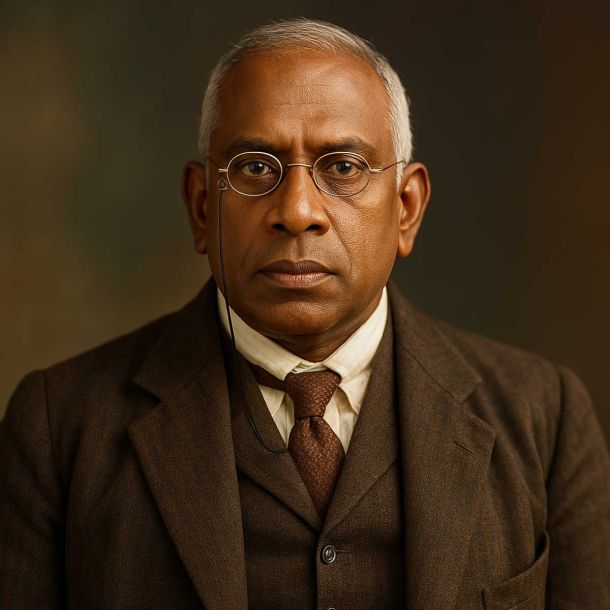MORE COVERAGE
"How can you tell when a political ideology has become the equivalent of a religion?": Associate Professor at Truman State University, Marc Becker is an organizer for Historians against the War with a long history of radicalism and antipathy toward the US

When The Professors was first published in February 2006, it was greeted by cries of outrage from the academic Left. The author was denounced as a reincarnation of Joseph McCarthy and his book as a “blacklist,” although no evidence existed to support either claim and both were the opposite of the truth. Far from being a “blacklist,” the text explicitly—and in so many words—defended the right of professors to teach views that were unpopular without fear of political reprisal. The author also publicly defended the First Amendment rights of Ward Churchill, the most notable case of a professor under attack for his political views.
When viewed as a whole, the 101 portraits in this volume reveal several disturbing patterns of university life, which are reflected in careers like Ward Churchill’s. These include:
- promotion far beyond academic achievement (Professors Anderson, Aptheker, Berry, Churchill, Davis, Kirstein, Navarro, West, Williams, and others in this volume);
- teaching subjects outside one’s professional qualifications and expertise for the purpose of political propaganda (Professors Barash, Becker, Churchill, Ensalaco, Furr, Holstun, Wolfe, and many others);
- making racist and ethnically disparaging remarks in public without eliciting reaction by university administrations, as long as those remarks are directed at unprotected groups, e.g., Armenians, whites, Christians, and Jews (Professors Algar, Armitage, Baraka, Dabashi, hooks, Massad, and others);
- the overt introduction of political agendas into the classroom and the abandonment of any pretense of academic discipline or scholarly inquiry (Professors Aptheker, Dunkley, Eckstein, Gilbert, Higgins, Marable, Williams, and many others).
Not all of the professors depicted in this volume hold views as extreme as Ward Churchill’s, but a disturbing number do. All of them appear to believe that an institution of higher learning is an extension of the political arena and that scholarly standards can be sacrificed for political ends; others are frank apologists for terrorist agendas, and still, others are classroom bigots. The dangers such individuals pose to the academic enterprise extend far beyond their own classrooms. The damage a faculty minority can inflict on an entire academic institution, even in the absence of a scandalous figure like Ward Churchill, was recently demonstrated at Harvard when President Lawrence Summers was censured—the first such censure in the history of the modern research university in America—because Summers had the temerity to suggest in a faculty setting an idea that was politically incorrect.
Associate Professor Marc Becker, Latin American history at Truman State University
— Organizer and media developer for “Historians against the War”
— Protests the celebration of Columbus Day
An associate professor of Latin American history at Truman State University, Marc Becker is an organizer and media developer for Historians against the War, which defines itself as an anti-war group of “radical scholars and intellectuals... deeply concerned about growing repression [in the United States] and, in particular, its impact on critical thought and expression.” In a joint effort with the radical Center for Constitutional Rights, Historians Against the War strives to expose “U.S. war crimes and government deception,” including “the destruction of antiquities allowed by the U.S. forces in Iraq.” Historians Against the War has developed a nationwide “virtual speakers bureau” of members prepared to disseminate the group’s anti-American message to the crowds attending anti-war demonstrations anywhere in the country—all in an effort to derail what it calls “the current empire-building and war-making activities of the United States government at home and abroad.”
Professor Becker has a long history of radicalism and antipathy toward the United States. At age 18, he refused to register for the draft and fled to Canada to avoid prosecution. As part of his classroom lectures, he recounts to students stories of his participation in protests against free trade talks in Latin America, including his numerous trips to condemn “Western intrusion” in Ecuador, one of Latin America’s most stable democracies. Of his experience at one such protest in 2002, where his fellow demonstrators got out of control and were tear-gassed by Ecuadorian police, Professor Becker has said, “For me, the impact of having been tear-gassed was such that I lost my fear. They can do this, but they can’t kill us, and we come back even stronger.”
Professor Becker condemns American capitalism and “militarism.” He has protested the celebration of Columbus Day, because “Columbus’s actions launched an era of modern colonialism, rape, pillage, genocide, cultural destruction, slavery, economic and environmental devastation.” “Christopher Columbus,” Professor Becker elaborates, “is a classic grade school hero—and one that is built on a very tall pile of lies. We are told that he proved that the world was round, even though people had known this for millennia and the only astounding thing about Columbus’s ideas was how completely wrong he was (the earth was much larger than he thought). We are told that Columbus discovered America, but yet with people living in this hemisphere for tens of thousands of years he discovered it only in the sense that a robber might be said to ‘discover’ cash in a bank vault.”
Professor Becker views the contemporary issues of free trade and globalization through the same ideological prism: In 2003, he said, “Five hundred and eleven years after [Columbus] sailed the ocean blue, globalization in the form of the FTAA, the WTO, and the IMF continues to devastate the Indigenous peoples of the Americas.”
Research: John Perazzo
Joel Beinin, Middle Eastern history professor at Stanford University
— Former president of Middle East Studies Association
— Supported Saddam Hussein’s aggression against Kuwait
— A former Zionist, Professor Joel Beinin now refers to jihadist suicide bombers as “martyrs” and denounces American “imperialism” on Al-Jazeera Television.
Professor Joel Beinin teaches Middle East history at Stanford University and is a former president of the Middle East Studies Association. Born in 1948 to Labor Zionist parents, he experienced an ideological transformation at age 22 while living on Kibbutz Lahav. Professor Beinin joined the “New Left” at Hebrew University, then migrated to Trotskyite anti-Zionism and finally to Maoism. A Marxist ever since, he received his BA, MA, and Ph.D. from Princeton, Harvard, and the University of Michigan, respectively. He has received Ford Foundation grants and has taught in France, Britain, Israel, and Egypt.
In 1991, Professor Beinin dismissed U.S. concerns over Iraq’s invasion and attempted annexation of Kuwait as “patently ridiculous,” insisting that the real American goal was not to stop Saddam’s aggression but to maintain weak, unstable “ministates” in the region, thereby assuring cheap oil and generating demand for U.S. weapons.
Just before the 2003 Iraq War, Professor Beinin appeared on Al-Jazeera to condemn U.S. “imperial” policy in the Arab world, despite the fact that the United States never had a Middle East colony, and in 1956 famously supported Egypt’s defense of the Sinai against its own allies, the colonial powers Britain and France. This history didn’t impress Professor Beinin anymore than the fact that his fellow countrymen were about to step into harm’s way to liberate 30 million Iraqis from a monstrous tyrant. Instead, Professor Beinin told Al-Jazeera’s Arab audience that President Bush planned to establish “a puppet regime” in Baghdad to benefit U.S. oil interests and force “Israeli dictates” on the Palestinians.
Once the war began, Professor Beinin accused Deputy Secretary of Defense Paul Wolfowitz and other U.S. policymakers of colluding with “Israel’s Likud Party,” and asserted that the United States and Israel had collaborated with Arab regimes to block “democracy and economic development in the Arab world.” Professor Beinin insisted that the United States was bent on displaying its “overwhelming military power... to make and unmake regimes and guarantee access to oil.” American conservatives, in his opinion, wanted to provoke “Islamist forces” so that they would “forsake legal political action and engage in armed struggle.” In other words, the aim of the United States was to spread terror throughout the Middle East.
Professor Beinin rejects the idea that the terrorism of the War on Terror is the creation of fanatical Islamicists themselves. He mocks the view that radical Islam is the source of terror with a term he coined: “terrorology.” A year after 9/11, Professor Beinin congratulated fellow members of the Middle East Studies Association for their “great wisdom” in refusing to recognize Islamic terrorism as a threat, because this would have been to succumb to imperialistic prejudices against oppressed peoples.118 Even al-Jazeera has described Islamic terrorism as a threat.
Professor Beinin’s ideological hostilities are directed not against the terrorist enemy, but against the state of Israel and its citizens, including those who were refugees from persecution in Arab countries. Professor Beinin denies that the exodus of Jews from Arab lands after 1948 was caused by the historic persecution of Jews in Arab countries, intensified by the creation of Israel. According to Professor Beinin, this exodus of hundreds of thousands of Jews from countries they had lived in for millennia was the result of “provocative actions by Israeli agents.”
After September 11, Professor Beinin focused not on Osama bin Laden’s fatwas calling for global jihad against the West, but on “Israel’s disproportionate use of force” against Palestinians as a root cause of the conflict. This was to ignore the obvious, since the agenda of Islamic militants like Hamas and al-Qaeda is the elimination of Israel, regardless of the force it uses to defend itself, and Palestinian grievances were low on the list in Osama bin Laden’s 1997 fatwa. In the face of the explicit programs of Hamas, Hizbollah, Palestinian Islamic Jihad, and other Islamic groups calling for the “liberation of Palestine from the Jordan to the sea,” Professor Beinin denies that Palestinian terrorism “pose[s] an existential threat to Israel.”
The Stanford Review, a conservative campus newspaper, describes Professor Beinin’s courses as “expensive training for the Marxist press corps.” When students in his class rejected his request to attend an anti-Iraq war protest in lieu of the class, Professor Beinin trumped them by holding his lecture at the protest itself.
Professor Beinin conducts an online course sponsored by Oxford, Stanford, and Yale Universities, called “Palestine, Zionism and the Arab-Israeli Conflict.” The “Zionist lobby” in Washington, he informs students, has the power to induce Washington to adopt an “uncritically pro-Israel foreign policy.” For “serious” reading, he recommends Egypt’s state-run Al-Ahram, a newspaper that routinely features anti-Semitic conspiracy theories and endorses Holocaust denial, likens Israeli leaders to Nazis, and praises suicide bombings.
In 2002, Professor Beinin initiated a petition that charged Israel with plotting the “ethnic cleansing,” which would commence with the war in Iraq. He predicted that Israeli premier Ariel Sharon would use the war as an opportunity “to push the Palestinians into Jordan.” Actually, this is the opposite of what happened: Sharon proposed the withdrawal of Israelis from Gaza instead.
Research: Alyssa Lappen122
 Support Us
Support Us
Satyagraha was born from the heart of our land, with an undying aim to unveil the true essence of Bharat. It seeks to illuminate the hidden tales of our valiant freedom fighters and the rich chronicles that haven't yet sung their complete melody in the mainstream.
While platforms like NDTV and 'The Wire' effortlessly garner funds under the banner of safeguarding democracy, we at Satyagraha walk a different path. Our strength and resonance come from you. In this journey to weave a stronger Bharat, every little contribution amplifies our voice. Let's come together, contribute as you can, and champion the true spirit of our nation.
 |  |  |
| ICICI Bank of Satyaagrah | Razorpay Bank of Satyaagrah | PayPal Bank of Satyaagrah - For International Payments |
If all above doesn't work, then try the LINK below:
Please share the article on other platforms
DISCLAIMER: The author is solely responsible for the views expressed in this article. The author carries the responsibility for citing and/or licensing of images utilized within the text. The website also frequently uses non-commercial images for representational purposes only in line with the article. We are not responsible for the authenticity of such images. If some images have a copyright issue, we request the person/entity to contact us at satyaagrahindia@gmail.com and we will take the necessary actions to resolve the issue.
Related Articles
- "In public realm, secularism should not concede a single inch to religious intrusions": India never knew a theocratic state till Islam entered Bharat, Hindu Dharma always was a pluralistic religion till genesis of Nehruvian Secularism for mystic reasons
- “Who says exactly what they’re thinking? What kind of a game is that?”: Committed Marxist, Prof. Berlowitz teaches “resistance” as in, “Privatization must be resisted,” - only a Marxist could make the connection between resisting privatization and peace
- "Behold it is born. It is already sanctioned by the blood of martyred Indian youths": Madam Bhikhaiji Cama, the Brave lady to first hoist India’s flag on foreign Soil - Formative Years
- “Dharma is law in its widest sense—spiritual, moral, ethical and temporal": How Chanakya's Arthashastra shaped the Telling of Ancient Indian History and should be read simply for its sheer brilliance in the area of statecraft and economics
- Professor M. Shahid Alam, Northeastern University: The 101 Most Dangerous Academics in America
- Professor Hamid Algar, University of California, Berkeley: The 101 Most Dangerous Academics in America
- "Each era, a stitch in time's tapestry": India's ancient timeline - From Svayambhuva Manu to the Mahabharata, new research using archaeo-astronomy redefines historical chronology, challenging established epochs and reshaping our understanding of the past
- “Instead of causing chaos and rocking someone else’s boat, you need to row your own”: Prof Berry, a strong advocate of racial preferences in employment & education, said “Civil Rights laws were not passed to give civil rights protection to all Americans”
- "Aum Mahadevaya Namaha - The Great Universal God": Sanatana Dharma forces human mind, time and time again, to accept the fact that Divine is all that exists, both clean and unclean, pure and impure, auspicious and inauspicious
- "How history was cooked up for Nalanda University": Story behind a Marxist historian accounts of its destruction by ‘Hindu fanatics’, and why no self-respecting Marxist could have rested this on just one miracle of acquiring 'sidhis' and 'raining fire'
- "Loafers of the world, unite!": Professor Stanley Aronowitz of City University of New York in his memoir “The Last Good Job in America” acknowledged that City University hired him as they believed he was a labor sociologist and admits it was just a scam
- "Hindus have a tendency to dip their foot in self-destructive behavior": Hindu elite shouts slogan of sarva-dharma- samabhãva whereas Muslim claims, "Allah has mandated lands of the infidels to his last prophet, in turn, has bequeathed them to the Ummah"
- When true Historian Sita Ram Goel's Challenge Became a Nightmare for Marxist Historians
- Asst. Professor of Comparative Literature at Columbia University, Gil Anidjar is an Anti-Israel activist, apologist for Islamic radicalism and identifies “good teaching” with pro-Palestinian activism: The 101 Most Dangerous Academics in America
- "To win this war, we need a commander in chief, not a professor of law standing at the lectern": Prof. Barash is not a trained historian, economist, or sociologist but a psychologist, while his co-author Professor Webel is a philosopher, let's teach Hate
Related Articles
Twitter Coverage
Satyaagrah
Written on
Satyaagrah
Written on
Satyaagrah
Written on
Satyaagrah
Written on
Satyaagrah
Written on




















